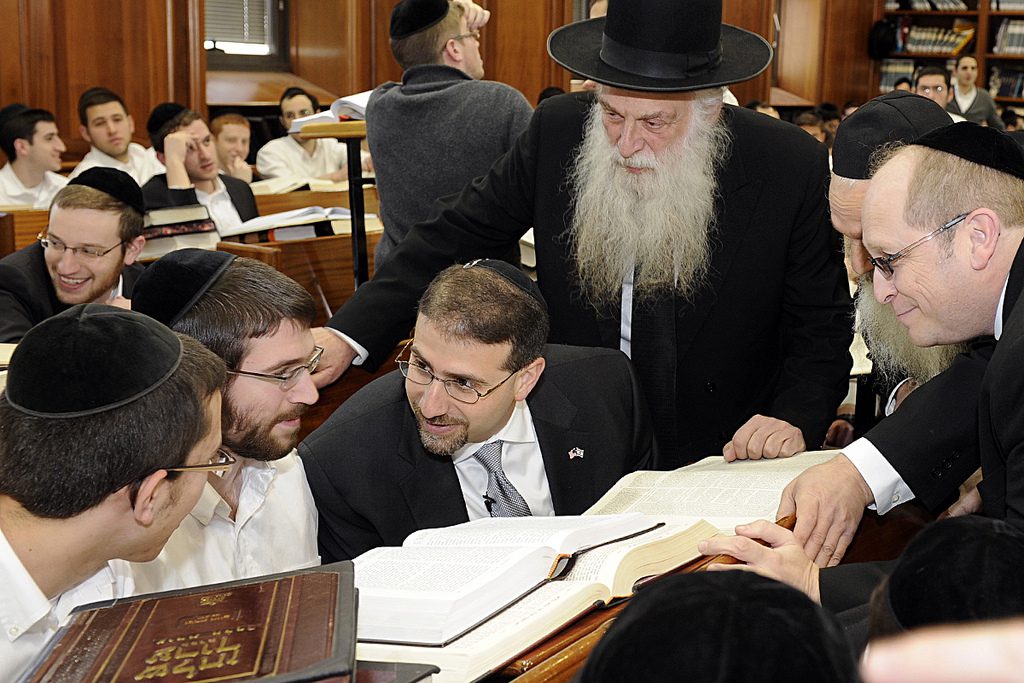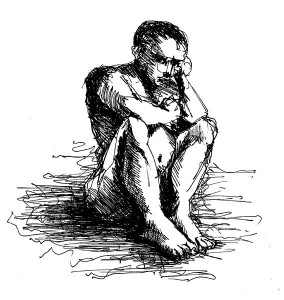I have always been curious (pun intended) about sins that take place only in the mind. It is very strange to think that a violation of God’s command could happen within your neurons. In other contexts, I’ve discussed before the interior nature of the sin of coveting and the interior sin of lust and whether it needs a purpose clause or not. Of course, “to covet” and “to lust” are very similar sins that have external objects of desire. What about a more purely intellectual kind of sin where the object of the mind is not external but internal? Can a mind sin by desiring knowledge?
The Short Answer
The short answer is “yes.” Curiosity about forbidden knowledge–e.g. knowledge of witchcraft or knowledge of what it feels like to commit a horrendous crime–leads the mind astray, and left unchecked can prompt a person to descend into sin. Not all knowledge is innocent. Seeking out forbidden knowledge is a sinful pattern, where the intellect is not being used for its intended purpose (to contemplate God), but rather is indulging in its own self-interested designs.
Wait, But Isn’t Curiosity a Good Thing?
It’s hard to find books that warn about curiosity. Typically, in our apathetic age, teachers, pastors and leaders encourage people to stop scrolling their social feeds and “get curious” about important and interesting topics. This kind of intellectual inquiry is not just harmless; it’s actually essential to our intellectual development. If we are not interested in things that matter, then we won’t bother learning about them and if we don’t learn about them, we will be less than we could have been. So some curiosity is a good thing, it’s true. We want to be intellectually interested in learning about the truth.
Some Definitions
 The Catechism of the Catholic Church does not spend much time on this, but allows that the Gospels were not written to satisfy human curiosity (CCC 514, 548), warns us against “unhealthy curiosity” about the future (CCC 2115), but it does not say much about the sin of curiosity. Fr. Jordan Aumann’s Spiritual Theology warns of “vain curiosity” and also “Morbid curiosity. This is characteristic of those who eagerly seek out the esoteric aspects of mystical phenomena or have a fascination for the occult or preternatural.” Even Tanqueray doesn’t talk about it much. St. Bernard of Clairvaux says that curiosity is the “first step of pride,” defining it as “when the eyes and the other senses attend to what is not one’s concern.” St. Thomas goes even deeper on this point and teaches that:
The Catechism of the Catholic Church does not spend much time on this, but allows that the Gospels were not written to satisfy human curiosity (CCC 514, 548), warns us against “unhealthy curiosity” about the future (CCC 2115), but it does not say much about the sin of curiosity. Fr. Jordan Aumann’s Spiritual Theology warns of “vain curiosity” and also “Morbid curiosity. This is characteristic of those who eagerly seek out the esoteric aspects of mystical phenomena or have a fascination for the occult or preternatural.” Even Tanqueray doesn’t talk about it much. St. Bernard of Clairvaux says that curiosity is the “first step of pride,” defining it as “when the eyes and the other senses attend to what is not one’s concern.” St. Thomas goes even deeper on this point and teaches that:
For the knowledge of truth, strictly speaking, is good, but it may be evil accidentally, by reason of some result, either because one takes pride in knowing the truth, according to 1 Corinthians 8:1, “Knowledge puffeth up,” or because one uses the knowledge of truth in order to sin.
So here, we see two potentially sinful results of a desire for knowledge: 1) pride, 2) knowledge used to sin (e.g., knowing recipes for poison). Pride, in this way, is a “sin of the neurons”–in that it is an inflated self-regard. The second kind of curiosity though really only becomes sinful when it is used for some further aim.
St. Augustine on “curiositas”
Here is a tidbit on St. Augustine’s teaching on the vice of curiositas:
“Augustine also included curiosity in a triad of sins (along with pride and carnality) which constitute the roots of the soul’s sinful movement from God….Like every expression of lust, curiosity disrupts the soul’s proper mid-rank position between God and lower bodily natures. It thereby prompts the soul to submit itself to the very things it should govern, to love what it should use for the love of God, or to become engrossed in acts proper to itself, to the neglect of universal laws common to all.” (N. Joseph Torchia, “Curiosity,” in Augustine through the Ages: An Encyclopedia, ed. Allan D. Fitzgerald [Grand Rapids, MI; Cambridge, U.K.: William B. Eerdmans Publishing Company, 1999], 260.
So, curiosity is disruptive. It leads the human soul into error, to love itself too much rather than to love what is good for it, namely God.
The Longer Answer: The Purpose of the Human Intellect
Curiosity itself is hard to classify as a sin. It is more of a vice, a tendency toward sin that can lead to sinful seeking out of forbidden knowledge, seeking knowledge for the wrong reason (pride), or seeking knowledge in order to commit sin. It’s interesting that St. Thomas actually struggles with the thought that maybe the original sin of Adam and Eve was curiosity: they desired knowledge of good and evil, a kind of knowledge that they should not have desired, and so disobeyed God (Thomas asserts though that it was out of pride that they sought this forbidden knowledge). But if we reduce things to their basic essentials, we can consider why we human beings were given an intellect in the first place. What’s the ultimate aim of all our minds? Well, God, of course. God is the aim. So anything that is diverting us from that kind of ultimate truth-seeking is leading us astray. If our pursuit of knowledge is leading us away from God instead of toward him then we are succumbing to the sin of curiosity rather than embracing the path to Truth.
It’s still hard for me to think of Curious George as an archetype of evil, but…
For further reading, check out: Paul Griffiths, The Vice of Curiosity: An Essay on Intellectual Appetite (2006).








